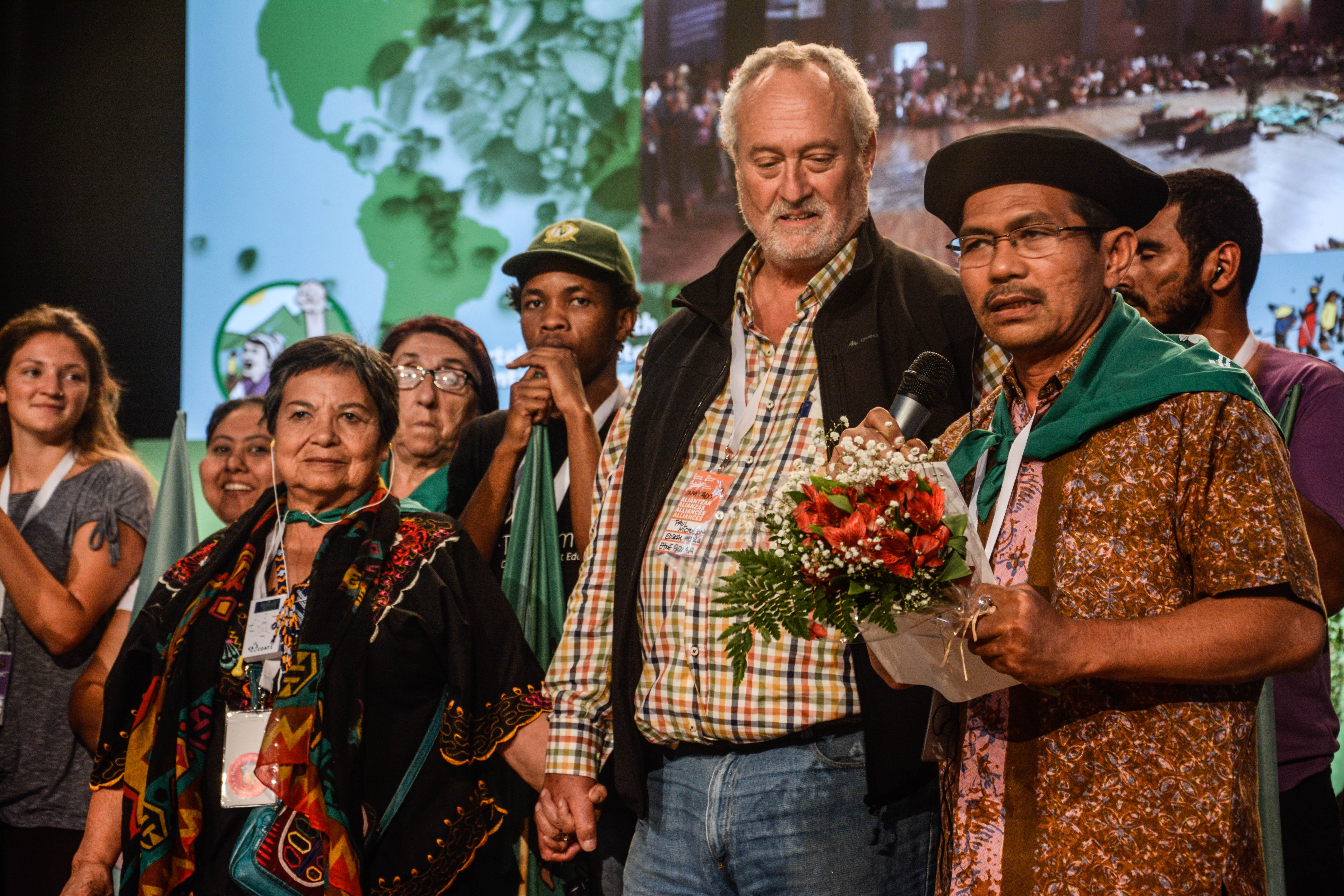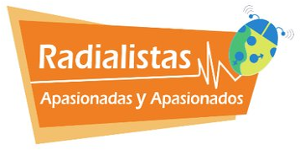"The goals of this Conference have been met, these have been seven very intense days and the Conference is not the place to be an intellectual or academic; it is a moment to share, to cry, to laugh", said the seasoned leader while the calm streets of Bilbao are filled with the slogans of La Via Campesina International and their allied organizations.
In his opinion, the role of La Vía Campesina is to amplify the voices of rural communities around the world, raising crucial alternatives for all humankind. After 25 years building this voice, and 100 years of the first anti-capitalist victory condensed in the Russian Revolution, Real World Radio interviewed Nicholson, overcoming the emotions brought by the end of the Conference.
"We´ve had interpreters for 13 languages at our conference, while the United Nations has 5, but none of this has been covered by the massive media... the communication media ignore us", said Paul, outraged.
In fact, 79 countries from all continents were represented in this global event, which dealt with the need for "repeasantization" in some areas of the world, and the role of rural communities organized in the building of peace over armed conflicts and the common threats posed by free trade agreements or investment protection agreements.
"We´ve had interpreters for 13 languages at our conference, while the United Nations have 5, but none of this has been covered by the massive media... the communication media ignore us" / PAUL NICHOLSON
As far as the challenges ahead for LVC, Paul Nicholson said: "as a social movement I believe it is very important to build bridges with the city. Building alliances with social movements for a new world, with more solidarity and environmental justice. This is the challenge: to consolidate these alliances".
* This report, together with the interview, is part of RWR´s work at the 7th International Conference of La Vía Campesina as members of the international communications team of said event.











